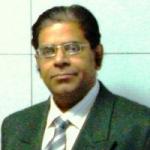Current acupuncture
research suggests a
convergence of the neurophysiology model, the connective tissue model
and the growth control model.
The growth control model of acupuncture
set the first example of a biological model in integrative medicine
with
significant prediction power across multiple disciplines. It is the
first theory in basic acupuncture research which has met the gold
standard in testing scientific theory. The following predictions of
the
growth control model have been independently confirmed by research
results in both acupuncture and conventional biomedical sciences:
1.
Acupuncture has extensive growth control effects.
2. Singular point
and
separatrix have important roles in morphogenesis.
3. Organizers have
high electric conductance, high current density and high density of
gap
junctions.
4. A high density of gap junctions is distributed as
separatrices or boundaries at body surface after early embryogenesis.
5.
Many acupuncture points are located at transition points or boundaries
between different body domains or muscles, coinciding with the
connective tissue planes.
6. Some morphogens and organizers continue
to
function after embryogenesis. The growth control model has also shed
light on several puzzling phenomena of acupuncture such as the
distribution of auricular acupuncture points, the long term effects of
acupuncture and the effect of multimodal nonspecific stimulation at
acupuncture points.
Future Directions
The structure
and cell
differentiation at acupuncture points as well as the neurophysiology
and growth control signal transduction involved in different
modalities of acupuncture should be further delineated.
Manipulating the singular points -
organizers of the growth control system may be a convenient way of
activating intrinsic stem cells as evident from the improvement of
sperm quality after acupuncture.
As the growth control model predicts
the growth control activity at acupuncture points/extreme points of
surface (or interface) curvature after embryogenesis, residual
morphogen gradient may still exist at these points and may be
detectable by probing morphogen candidates such as Hedgehog, Wnt and
TGF-beta families. Certain morphogen gradient distributes along
boundaries. This pattern may persist after
embryogenesis into adulthood and coincides with meridians.
Mapping of the growth control system
and the dynamics of its electromagnetic field with high resolution
techniques such as the superconducting quantum interference device
(SQUID) and atomic magnetometer :The growth control
model predicts that the singular points and separatrices of the
bioelectric field in growth control correlate with the acupuncture
points and meridians respectively.
The growth control model suggests
that techniques involving the stimulation of the growth control
system such as acupuncture can activate the growth control activity
of an organism and improve its structure and function at a more
fundamental level than symptomatic relief. In growth
control, the change in electric field precedes morphologic change
and manipulation of the electric field can affect the change.
Development of the techniques of detecting and
manipulating the electric field may enable the diagnosis and
treatment of a pathologic process at the early signal transduction
stage prior to the anatomical or morphological change.
The growth control model suggests
that apparently unrelated acupuncture points are not exactly
�placebo� points. The more acupuncture points are used as placebo
points in a RCT, the more likely that some systemic effects will be
resulted from the �placebo� treatment. The self-regulatory effect of
acupuncture will be difficult to predict when the patients have
multiple comorbidities and many acupuncture points are used. Subtle,
�sham� stimulation at acupuncture points can be effective due to the
response of the acupuncture points to nonspecific stimuli. These
reasons may contribute to the mixed results in RCTs on acupuncture.
This model also suggests that acupuncture is mostly likely to
demonstrate its efficacy and advantage in a patient population with
few comorbidities, relatively good general health and vitality and a
regimen with efficient use of acupoints.
The growth control model suggests
that the distribution of growth control system is related to both
internal and external structures. Acupuncture points which are not
at obvious extreme points of surface curvature or meridians which
are not at obvious surface boundaries may be vestigial or related to
interface between internal structures such as muscles and bones.
Intrinsic stem cells are likely part of the undifferentiated growth
control network. The germ cell is one of the least differentiated
cells and also a type of stem cell � similar to the embryonic stem
cell in its ability to differentiate into all three germ layers. The
distribution pattern of intrinsic germ cells can be deduced based on
the fact that the distribution pattern of primary tumors reflects
the distribution of their normal counterpart. The primary germ cell
tumors have a midline and para-axial distribution
pattern which spans from the sacrococcygeal region to pineal gland.
It appears to concentrate at 7 locations: sacrococcygeal region,
gonads, retroperitoneum, thymus, thyroid, suprasellar
region, and pineal gland. This pattern reflects the distribution
pattern of intrinsic germ cells which are likely to be highly
inter-connected in a normal state (e.g. via gap junctions
) and provide important regulatory functions. This
also suggests a hierarchy in the degree of cell differentiation and
function in the growth control system.
Full Research with references - pl visit www.medaku.com
 Comments (
Comments ( Category (
Category ( Views (
Views (